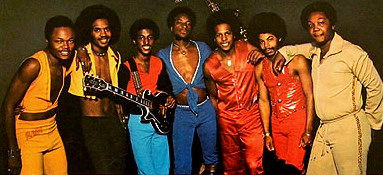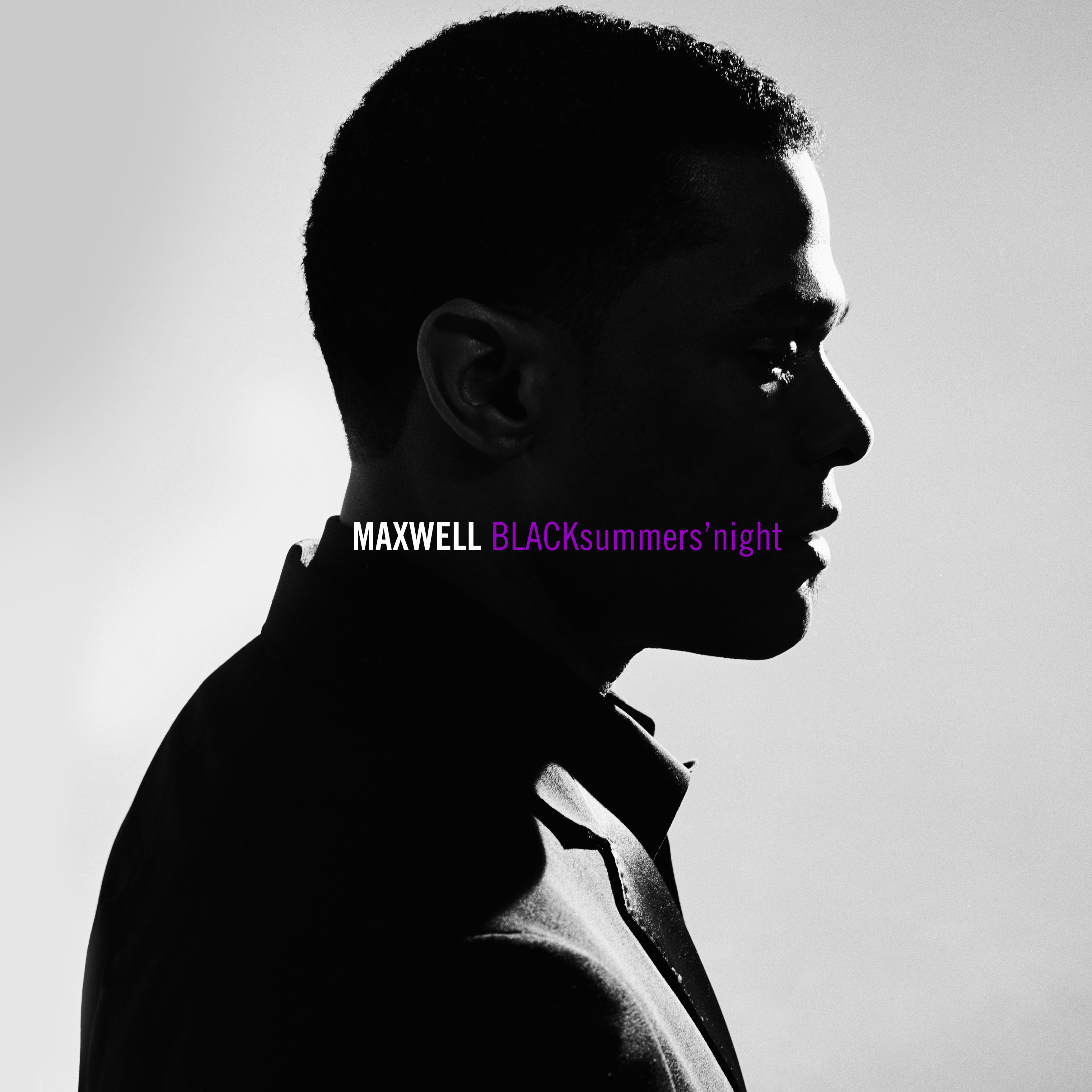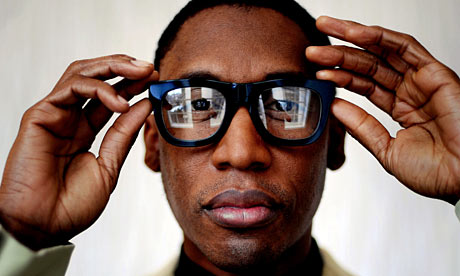
Babyface turns 30 this year. Sure, the Man Who Would Be Babyface — Kenneth Edmonds — was born in 1959, but the singer, songwriter, producer, and all-around hit maker extraordinaire began taking baby steps up the Billboard charts the year Michael Jackson’s Thriller dominated every chart. Join Robert Cass, Jeff Giles, and Mike Heyliger as they take a look back at the first three decades of Babyface’s career, with various detours along the stream of consciousness.
“Funky Situation” by Manchild [Amazon / iTunes] (written by Kenneth “Babyface” Edmonds; produced by Sonny Sanders; from Power and Love, 1977)
Robert: I’m breaking the rules for this week’s selection, which was released six years before Babyface established himself as a go-to songwriter for hire with Midnight Star’s “Slow Jam” and as a performer with the Deele. But everyone loves a good origin story, right? And once you know that Babyface got his start as a teenager in a band called Manchild, the world makes a little more sense, doesn’t it?
Written by li’l Kenny “Not Yet Known as Babyface” Edmonds when he was barely old enough to drive, “Funky Situation” is the closing track on the Indianapolis septet’s debut, Power and Love, which was followed one year later by Feel the Phuff before Manchild broke up in 1980; it’s also the one track that features Edmonds on lead vocals. The group’s lineup included percussionist Daryl Simmons, who later cowrote hits like Boyz II Men’s “End of the Road” and Bobby Brown’s “On Our Own” with Babyface and L.A. Reid, and saxophonist-guitarist Reggie Griffin, who continued his association with ‘Face into the ’80s and ’90s by playing guitar on the Deele’s 1985 album Material Thangz; “Let It Flow,” a track from Toni Braxton‘s Secrets (1996); and the 1997 Boyz II Men song “Girl in the Life Magazine.” Everyone in Manchild except drummer Robert Parson wrote songs for their two albums, but on Power and Love the band reserved a slot for the Michael McDonald composition “Takin’ It to the Streets,” yet another sign of the color-blindness of ’70s pop and R&B that we discussed in the first installment of ‘Face Time.
Power and Love was released by Chi-Sound Records (through a distribution deal with United Artists), which producer Carl Davis founded in Chicago in ’76 after shepherding hits like Gene Chandler’s “Duke of Earl” and the Chi-Lites’ “Oh Girl.” Manchild recorded their debut in the label’s namesake city, and according to the album’s back cover, it was mixed at Chicago’s Universal Studios by — fascinating factoid! — engineer Bruce Swedien, who met Quincy Jones there in 1954 when he produced a session for Dinah Washington. Two years after Power and Love Swedien began work on Off the Wall for Jones and Michael Jackson, and subsequently mixed all of Jackson’s solo albums over the next 22 years.
Jeff: I guess “Funky Situation” isn’t what anyone would call remarkable, and I’m sure nobody would even know about it if Babyface hadn’t been a part of Manchild. That said, I dig it, and I’m genuinely curious as to whether he could write and/or perform something with this much heat today. I mean, it isn’t a great song — those breakdowns are pretty dire — but it’s got more muscle than craft, and I think Babyface’s most recent stuff has probably slipped too far down the other side of that spectrum.
Mike: Man, those midwestern funk grooves were a dime a dozen, weren’t they? Those breakdowns are horrid.
Jeff: That’s true, but they’re more interesting than any part of Katharine McPhee’s “Everywhere I Go” or Fantasia’s “I Feel Beautiful” (or whatever those stupid songs we briefly mentioned last week were called). Babyface sounds like he’s reaching here, and listening to “Funky Situation” makes me realize it’s been too long since we’ve heard him do that.

Manchild, 1978 (left to right: Kevin “Flash” Ferrell, Chuckie Bush, Kenny Edmonds, Reggie Griffin, Daryl Simmons, Anthony Johnson, Robert Parson)
Robert: Let’s cut pre-Babyface (Fetusface?) some slack. He turned 18 the year Power and Love was released, an age when most of us aren’t creating enduring masterpieces. He’s reaching, like you said, Jeff, and he ultimately overreaches in his attempt to fit those quiet-storm breakdowns in between the grooves of his charging funk riff, but once the horns kick in all is forgiven, and I like how you can almost hear a pimply ‘Face getting excited at the thought of combining different R&B motifs in one song.
Mike: I feel he was maybe reaching for a place where he wouldn’t be successful. Some people are just meant for “smooth.”
Jeff: And he’s definitely one of them. Don’t you feel, though, like there’s a certain, I don’t know, excitement missing from his songs over the last 10-15 years? They might’ve been machine driven, but his early hits had a real pulse. I’m not saying Babyface’s best latter-day stuff is bad, just that it’s lacking a certain something, and maybe that comes from him being a little too aware of who he is, or “should be,” as an artist.
Mike: Oh, you’re absolutely right about that.
Robert: On that Katharine McPhee song he definitely sounded distracted, to put it mildly, but who knows — he may think it’s one of the best songs he’s ever written. Even on Alicia Keys’s “That’s When I Knew” he wasn’t taking any big risks as a writer or producer, which leads me to ask: Who could bring out an unexpected side of ‘Face as a solo artist in the twenty-teens? A production team like Damon Albarn and Richard Russell, who put Bobby Womack back in the spotlight last year with The Bravest Man in the Universe? Would Kanye West be up to the task? Or what about Salaam Remi, who did such a fantastic job on Amy Winehouse’s first album, Frank, ten years ago?
Jeff: You know my answer in these situations: Joe Henry!
Mike: Eh, I dunno if either Henry or Albarn would be a great choice; that Womack album from last year wasn’t very good. And I think a Kanye-produced Babyface album would sound very much like a typical Babyface album. Remi would probably be the best choice.
Jeff: Oh, I liked the Womack album quite a bit. And I was kind of joking about Henry, but go listen to the work he did on the I Believe to My Soul compilation — he knows what to do with soul and R&B artists of a certain age. I think he’d get some fascinating stuff out of Babyface.
Then, of course, there’s the Roots.
Mike: Hmmm … That I might dig. I mean, it’s not like Babyface hasn’t tried to push himself out of his comfort zone before; that album he did with the Neptunes was okay. Shit, maybe Timberlake could give him a song or two.
Jeff: No outside material. Lock him in a warehouse with a band and don’t let him come out until he has a record.
Mike: Deele reunion!!
Jeff: Do you guys think Kevin “Kayo” Roberson will be able to get time off from work?
Robert: Don’t be cruel, Jeff. Kayo performed on Babyface’s albums and other assorted LaFace productions, including Don’t Be Cruel, into the ’90s, and cowrote two songs for Babyface’s solo debut, Lovers (1986), with ‘Face and co-Deeler Darnell “Dee” Bristol. I wouldn’t be surprised, however, if Carlos “Satin” Greene was a little peeved when the band’s shy, skinny guitarist-keyboardist stepped out on his own and ended up becoming the superstar loverman. Then again, I’m not familiar with most of the Deele’s discography — was Greene generally thought of as the frontman, or did he split those duties with Bristol?
Jeff: Oh shit! I just looked up the Deele and saw that they reunited — minus Babyface and L.A., obviously — six years ago. And they released a Christmas song! MELLOWMAS 2013, HERE WE COME.
Mike: Ohhhh yeah …
Robert: Babyface isn’t as old as Bobby Womack, of course, but he probably is past the point where a collaboration with a young production team, like the Neptunes were in 2001, would be seen as a smart move rather than a desperate one. A collaboration with a younger artist who’s looking to produce might be the way to go, though. Does Frank Ocean need something to put on his resumé under “other skills”?
Jeff: See, I don’t want to hear what Frank Ocean would do with Babyface, whose trendsetting days are over, and working with an artist du jour probably wouldn’t be good for much more than novelty value. I’d much rather hear him go back to making music with a band, especially since, as we noted in this series’s first installment, he was part of the last generation of black musicians for whom starting a band wasn’t out of the ordinary.
Mike: I actually think Babyface and the Roots could come up with something of quality, and a Frank Ocean collaboration would help him out on the songwriting tip, for sure. Do we get A&R credits if this actually comes to pass?
Robert: We should at least get an iTunes gift card so we can buy the resulting album. The Roots would be fine as the producers/band, but please, no sleepy neo-soul à la D’Angelo’s Voodoo (2000). I want melodic funk.
What if Babyface hired Jimmy Jam and Terry Lewis to produce an album for him?
Mike: Glad you’re not the only person who finds Voodoo kind of boring; I think it’s an overrated album. But when was the last time Jam & Lewis produced something? Other than that Original 7ven album two years ago, I mean.
Jeff: NO TALKING ABOUT JAM & LEWIS.
Robert: But this is important, Jeff!
I think Voodoo‘s one of those albums people have on their shelves, or hard drive, but rarely ever listen to. Mike, when we talked about “Take a Bow” in January you mentioned some songs from Usher’s 2004 album, Confessions, that they produced.
Mike: Right. It doesn’t get a lot more recent than that, though. I’m thinking that the last stuff they produced was maybe 2008 or so? I also think they have underlings — specifically, the Avila Brothers — who do most of their production work for them these days.
There are several songs from Voodoo I like quite a bit — “Devil’s Pie,” “Send It On” — but the album as a whole is kind of a snooze. Not a lot of melody to be had. I like Brown Sugar (1995) better.
Robert: “Chicken Grease,” “Spanish Joint,” “Africa,” and “Untitled (How Does It Feel)” are all good songs on their own, but like you said, the general lack of melodies throughout the album makes it an endurance test, to say nothing of its 79-minute running (crawling?) time. Neo-soul, on average, is so sleepy it’s practically put D’Angelo, Maxwell, and Lauryn Hill in a coma the past ten years.
Mike: Stop it. I like Maxwell. And Lauryn Hill is just insane. Neo-soul has nothing to do with it.
 Robert: I like Maxwell too, or at least Now (2001) and parts of his other albums. But the second installment of his Blacksummers’night trilogy was supposed to arrive in 2010, a year after the first one, right? Still waiting …
Robert: I like Maxwell too, or at least Now (2001) and parts of his other albums. But the second installment of his Blacksummers’night trilogy was supposed to arrive in 2010, a year after the first one, right? Still waiting …
Mike: It’s supposed to come out this summer. I think all four of Maxwell’s albums are somewhere between good and great.
Robert: Even Embrya (1998)? Neo-soul is just too earnest for me. It’s as if Bruce Springsteen’s fan base inexplicably morphed into an R&B subgenre. (That’s a screenplay pitch I’m working on for Pixar. Wish me luck!)
Would Babyface benefit from having Rick Rubin as a producer? I could see him favoring the full-band approach.
Jeff: Rick Rubin is a one-trick pony. And from some of the stuff his clients have said about him over the last few years, he’s kind of lost interest in even doing that much.
T-Bone Burnett!
Mike: Oh God no.
Jeff: Maybe Raphael Saadiq rubbed off on him during those Elton John sessions!
Robert: Hey, what about Saadiq as a producer? Babyface produced “Boys and Girls” in ’97 for his former group, Tony! Toni! Toné! Saadiq could return the favor by coproducing a new ‘Face album with Tony Rich as Tony! … Tony?
Jeff: Get Tony Rich out of there and you’ve got yourself a deal!
 Mike: I think a Saadiq/Babyface album would be great.
Mike: I think a Saadiq/Babyface album would be great.
Jeff: Absolutely. I say we start bugging them about it on Twitter.
Mike: Anything to get Saadiq out of the ’60s and back into the present.
Robert: Exactly. No Stax or Motown “homages” allowed. But if he wants Babyface to record a cover of “Whatever You Want” or “It Never Rains (In Southern California),” two of 3T’s best ballads, as a bonus track, I won’t object.
Mike: Both those songs sound like ‘Face could’ve written them at one point anyway. I’d rather have him cover the group’s 1993 song “My Ex-Girlfriend” (“… is a ho”).
For an in-depth look at Kenneth Edmonds’s discography as a solo artist, see Mike and Jeff’s Popdose Guide to Babyface.





Comments